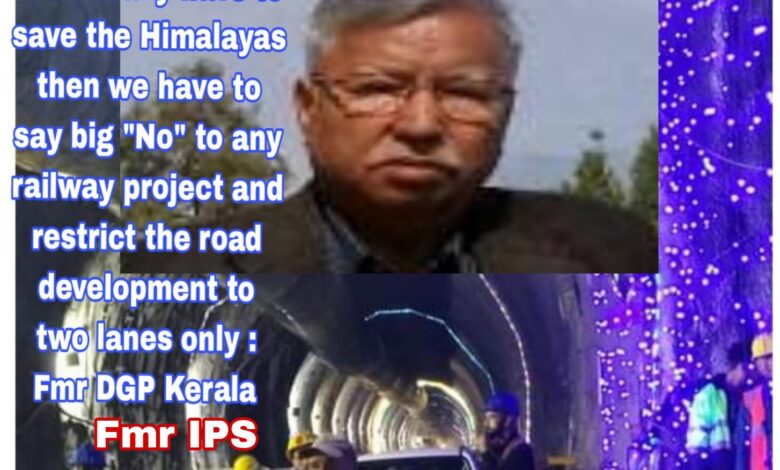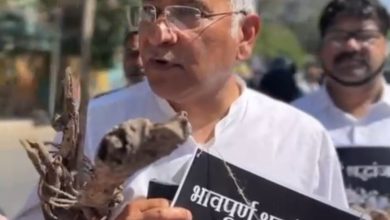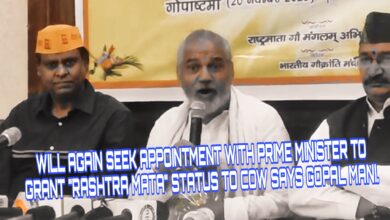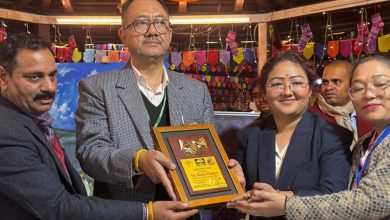If we really have to save the Himalayas then we have to say big “No” to any railway project and restrict the road development to two lanes only : Fmr DGP Kerala

The former IPS and ex Director General of Kerala, K. S. Jangpangi isn’t against development but is deeply worried that keeping in view the fragile ecology of Uttarakhand, digging of tunnels is the worst environmental onslaught amounting to last nail on the fragile and Vulnerable ecosystem of the Himalayan state.
Expressing his views on the recent breakthrough in the successful completion of a 2.014 tunnel of a rail project from Rishikesh to Karnaprayag, former DG P of Kerala and an ex IPS officer hailing from Uttarakhand K. S. Jangpangi wrote : The successful completion of 2.014 kms railway tunnel from Shrikot Gas Warehouse to Sweeth in Garhwal may be an engineering feat and marvel to be celebrated by many development enthusiasts. But it saddens me deeply not because I am against the development and progress of Uttarakhand but my question is – at what cost ?
Jangpangi asks : Does development mean only by destroying the fragile ecology of Uttarakhand ? Aren’t there other means of development which are ecology friendly and in consistency with the general ecological ethos of the region. He adds : Everyone knows Himalayan ecosystem is geologically the most recent and fragile one. It can’t bear the kind of environmental onslaught being done on it presently – particularly in Uttarakhand and Himachal in the name of development and progress.
According to immensely worried former IPS officer : The worst environmental onslaught in Uttarakhand today is tunneling of Himalayan ecosystem which pierces the innards of Himalayas and hollows it out. Can any living being survive after its innards are hollowed out by any means. It is not only barbaric but totally unsustainable exercise says Mr. Jangpangi adding : You can’t survive by cutting through your internal organs indiscriminately. It will one day surely crumble like pack of cards he said emphatically.
Expressing his immense concern over the extensive Tunneling of the Himalayan ranges for setting the railway network the former senior IPS said : Tunneling of Himalayas is the worst form of environmental destruction and design paving the way for ultimate end of Himalayan ecosystem and living beings dependent on it.
Warning over the so called development of Uttarakhand by playing with its fragile environment he said : We have already hollowed out several mountains and diverted and dried out many rivers of Garhwal Himalayas for hydroelectric projects. This railway line is last nail on the fragile and vulnerable Himalayan ecosystem. Expressing his serious reservations Mr. Jangpangi wrote : I am totall against any construction of railway line in Himalayas. I am also against the four lane road project linking four dhams in the Himalayas especially in Uttarakhand. The two lane road is sufficient for development road infrastructure for Chardham yatra connectivity. The four lane road project has already caused enough environmental damage.
It should be stopped forthwith in area it is still not completed. We should rather develop low cost helicopter services and ropeway systems for far-flung areas of Uttarakhand further saying that such alternatives are more environment friendly and cost-effective. Warning again against the unfriendly development at the cost of fragile environment of Uttarakhand he said if we really have to save the Himalayas then we have to say big “No” to any railway project and restrict the road development to two lanes only.
This is the only way we can save the Himalayas and Humanity both. Otherwise both are doomed to die and only arrogance of policy makers and coffers of contractors / engineers / bureaucrats survive. Even there won’t be any Himalayas for their progenies to live or visit. Of course Uttarakhand and its rich culture and society will be first victims of this suicidal policy paradigm. Hope policy makers atleast should now rise to this looming threat of extinction and total destruction said former IPS K. S. Jangpangi.





